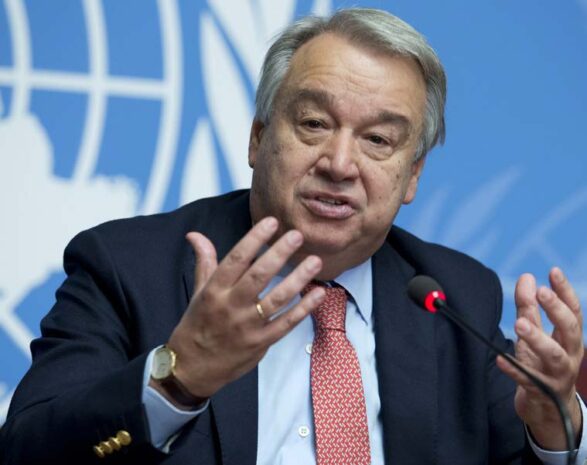By Sylvester Enoghase
LAGOS – The United Nations Secretary-General, António Guterres has presented new recommendations–Confronting the Debt Crisis: 11Actions to Unlock Sustainable Financing–that aim to break the cycle of debt distress and lay the foundation for unlocking long-term, affordable financing that supports sustainable development.
According to Guterres’ report, 3.4 billion people now live in countries where debt interest payments are greater than expenditure on health or education
“With two-thirds of low-income countries now at high risk of—or already in—debt distress, the report highlights a growing crisis: soaring debt service costs are crowding out vital investments in education, health, and climate resilience.
“The current global debt system is unsustainable, unfair and unaffordable, with many governments spending more on debt payments than on essentials like health and education combined,” said the Secretary-General.
“These 11 immediately actionable proposals can help resolve the debt crisis, empower borrower countries, and create a fairer system.”
The report prepared by the UN Secretary-General’s Expert Group on Debt, reinforces the commitments put forward in the FfD4 Outcome Document and makes the case that an end to the debt crisis is entirely feasible—if opportunities are seized.
Acknowledging the dedication of the Expert Group, the Secretary-General emphasised that the actions, rooted in the Outcome Document, have the potential to drive both short-term impact in relieving pressures on indebted countries, and long-term impact expanding access to long-term, affordable financing that drives sustainable development.
The actions are structured around three areas: reforming the multilateral financial system; strengthening cooperation among and providing technical assistance and capacity-building support to borrowing countries; and encouraging borrowing countries themselves to adopt policies and reforms that result in enhanced debt management and improved financing strategies.
